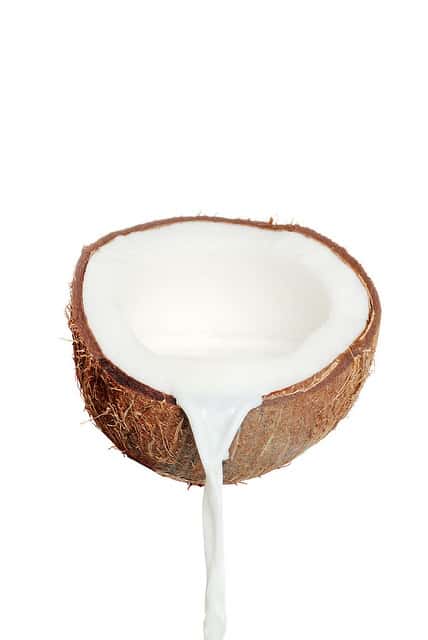Many dairy-free substitutes are using nut milks like almond, cashew or (technically not a nut) coconut milk. Ever since it hit the shelves, there have been claims of coconut milk being the miracle food to it being candy in disguise. But what is true? Are we doing more harm than good by going with this dairy substitute? Or is it something we should be getting more of? I decided to find out for myself.
What Is Coconut Milk?
Coconut milk, like the name suggests, comes from coconuts, but it isn’t really a milk. When you crack open a mature coconut, the liquid that drains out is coconut water. To get from water to milk, the liquid is blended up with the rich ‘meat’ of the coconut, or the chewy white substance inside the coconut. Then that mixture is strained, leaving you with a delicious rich substance we know as coconut milk!
Is It Bad For Me? Is It Good For Me?
This is where the subject gets complicated. The answer is yes and no, and mostly: it depends.
Cons:
Some other aspects to consider on the cons side of coconut milk have more to do with its production and storage. Many canned foods contain BPA, a chemical that is found in plastics and cans. While studies are still conflicted on whether or not BPA is dangerous when consumed, the fact that scientists don’t agree should give us reason for pause. To be fair, you can avoid this problem pretty easily by choosing brands that do not use BPA in their cans.
Another potentially problematic component of coconut milk is Guar gum: to spare you the scientific jargon, guar gum is a biproduct of guar beans. Many beans and legumes are difficult to digest, especially for those with digestive issues, and can exacerbate existing problems. This can also be avoided depending on the brands you purchase, or if you make your coconut milk at home.
Coconut milk does contain some natural sugars and is high in fatty acids, but those are both things your body needs and burns when consumed in moderate amounts.
Pros:
A large portion of the fat mentioned above is lauric acid, which has antibacterial and antiviral properties. It is also a proven promoter of heart health. Additionally, it’s rich in the following:
Fiber: promotes digestive health and
Vitamin C and E: immune system boosters
Vitamin B1, B3, B5 and B6: provide energy to the cells
Iron: creates and fuels red blood cells
Calcium: important for bone and teeth strength
Potassium: maintains heart, brain, and other important tissues
Magnesium: performs many biochemical functions in the body, including regulating the heart’s rhythm and supporting the function of nerve cells
Phosphorous: strengthens bone and teeth
It also provides electrolytes, antioxidants, good fatty acids that perform many functions for the body. That’s a lot of goodness packed into a single substance!
The Bottom Line
As with almost everything, coconut milk isn’t going to be good for you if you consume it in huge amounts. But if you buy consciously and consume moderately, you’ll be fine–and you may even experience some of the benefits of this delicious delight!



